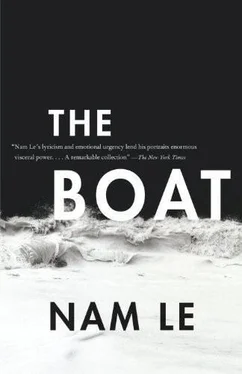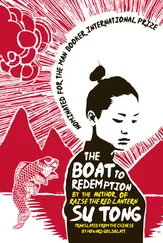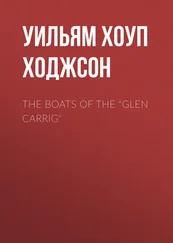He put his hand between her legs. She saw it happening, the feeling arriving after the thinking about it — it was maybe mildly disagreeable, she decided. The candle flame reflected off his skin so that his cheekbones and forehead became patches of brilliant white, as though the light had burned clear through.
She closed her eyes. The floating night before her.
"How do you feel?"
He sounded far off, acoustic, calling to her as though from the bottom of a well. There was water in her now, light in her body, in her lungs. Words floating up in bubbles of air. She followed the smoke and breath by breath her body gave out its substance. She got up with the slow, easy motions of a swimmer.
She was at the window, looking out. The light-spilled streets like narrow banks, the metal stream rolling ceaselessly between them. Lights from cars, candles, distant streetlamps deranging themselves into an emptiness so bright it evaporated everything. Parvin was out there somewhere. Inside those lights. Parvin, her friend.
Mahmoud called for her from the bed.
You could never know. Streets. Women walking, wind whipping their clothes. Black chadors loose and flaring behind their bodies, shreds of shadow. Wind blowing against their faces, shaking the veils smooth as sheets on clotheslines. Lights. You could never know when the light would take on weight again and crush you. She pushed herself against the glass. She was alone, and there was time yet. From the tops of plane trees, black birds hurled themselves against the sky — thousands of them.
"Sarah!"
Her name carried, still, a remote comfort and she stopped for it.
THE STORM CAME ON QUICKLY. The crosswind surged in, filtering through the apertures in the rotten wood, sounding like a chorus of low moans. The boat began to rock. Hugging a beam at the top of the hatch, Mai looked out and her breath stopped: the boat had heeled so steeply that all she saw was an enormous wall of black-green water bearing down; she shut her eyes, opened them again — now the gunwale had crested the water — the ocean completely vanished-and it was as though they were soaring through the air, the sky around them dark and inky and shifting.
A body collided into hers, slammed her against the side of the hatch door. The boat righted and she slipped again, skidding in jets of water down the companionway. The hatch banged shut. Other bodies — she was on top of them — thighs and ribs and arms and heads-jammed this way and that with each groaning tilt, writhing toward space as though impelling the boat to heave to, back into the wind. The rocking got worse. Light was failing fast now and inside the hold it had become uncannily dim.
Inches away from Mai's face, a cross-legged man tipped forward, coughed once into his hands, then keeled back onto his elbows. His face was expressionless. When the smell arrived she realized he had vomited. In the swaying half dark, people pitched forward and back, one by one, adding to the slosh of salt- water and urine in the bilge. People threw up in plastic bags, which they then passed on, hand to hand, until the parcel reached someone next to a scupper.
"Here."
Mai pinched the bag, tried to squeeze it out through the draining slit, but her fingers lost their hold as the boat bucked. The thin yellow juice sprayed into her lap.
On the steps below her, an infant started crying: short choking bursts.
Instantly she looked for Truong — there he was, knees drawn up to his chin, face as smooth and impassive as that of a ceramic toy soldier. Their eyes met. Nothing she could do. He was wedged between an older couple at the bottom of the steps. Where was Quyen? She shook off the automatic anxiety.
Finally the storm arrived in force. The remaining light drained out of the hold. Wind screamed through the cracks. She felt the panicked limbs, people clawing for direction, sudden slaps of ice-cold water, the banging and shapeless shouts from the deck above. The whole world reeled. Everywhere the stink of vomit. Her stomach forced up, squashed through her throat. So this was what it was like, she thought, the moment before death.
She closed her eyes, swallowed compulsively; tried to close out the crawling blackness, the howl of the wind. She tried to recall her father's stories — storms at sea, waves ten, fifteen meters high! — but they rang shallow against what she'd just seen: those dense roaring slabs of water, sky churning overhead like a puddle being mucked with a stick. She was crammed in by a boatload of human bodies, thinking of her father and becoming overwhelmed, slowly, with loneliness. As much loneliness as fear. Concentrate, she told herself. And she did — forcing herself to concentrate, if not — if she was unable to — on the thought of her family, then on the contact of flesh pressed against her on every side, the human warmth, feeling every square inch of skin against her body and through it the shared consciousness of — what? Death? Fear? Surrender? She stayed in that human cocoon, heaving and rolling, concentrating, until it was over.
***
She opened her eyes. A procession of people stepping over her, measuredly, as though hypnotized, up the companionway and onto the deck. She got up and followed them.
The night sky was starless. Only moonlight illuminated everything, emanating from a moon low and yellow and pocked, larger than she had ever seen it before. Its surface appeared to her as clear and as close as the ridges of a mountain from a valley. Pearly light bathed the stunned and salt-specked faces of the hundred people on deck, all of whom had expected to die but were instead granted this eery reprieve.
Nobody talked. Night, empty of sound, held every soul in thrall — the retching, the complaint of babies, the nervous breathings, now all muted. The world seemed alien, somehow beyond the reach of Mai's mind — to be beneath the giant moon, and have nothing but space, and silence, all around.
A fog rolled over the water.
Mai looked sternward and saw Quyen slumped, arms outstretched, collapsed to one knee. Her head lolled against her left shoulder. Her forearms were bleeding from rope burn — she must have been stranded on deck when the storm came in; someone had strapped her, spread-eagled, to a low horizontal spar, and saved her life.
Mai searched for Truong.
From below deck there now came a humming of prayer. Then someone gasped-Mai swung to find a face, then several, turning pale, hands to mouths beneath stupefied eyes.
"Do you hear?"
"What is it?"
"Be quiet! Be quiet!" an urgent voice commanded. "Listen."
But when the noise on the boat ceased, there still came from every direction the sound of people whispering, hundreds of people, thousands, the musical fall and rise of their native tongue. Barely intelligible. Sometimes right next to Mai's ear and she would whip around — but there would be nothing except the close, gray fog.
In a whisper, "It's nothing-the wind, that's all."
"Who's there?" someone demanded loudly, unsteadily, from the prow.
No answer, just the lapping of low murmurs.
On the foredeck, a man turned to his companion.
"Here?"
The second man nodded. Beneath the moonlight Mai recognized him. It was Anh Phuoc, the leader of the boat. He was, Quyen had told her, one of those mythic figures who'd already made his escape and yet returned, again and again, to help others.
He nodded and looked out into the haze.
And now she realized where they were — where they must be. Everyone had heard about these places. They had ventured into the fields of the dead, those plots of ocean where thousands had capsized with their scows and drowned. They stared into the fog. All drawn into a shared imagination, each in some space of unthinking as though they had leapt overboard, some madness possessing them, puncturing the glassy surface of the water and then plunged into black syrup, coming up into breath but panicked, disoriented, flailing in a viscid space without reference or light or sound.
Читать дальше











